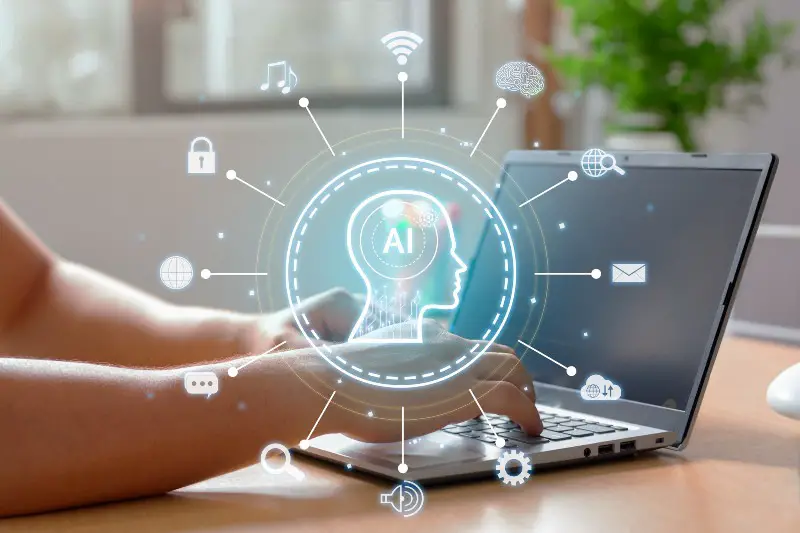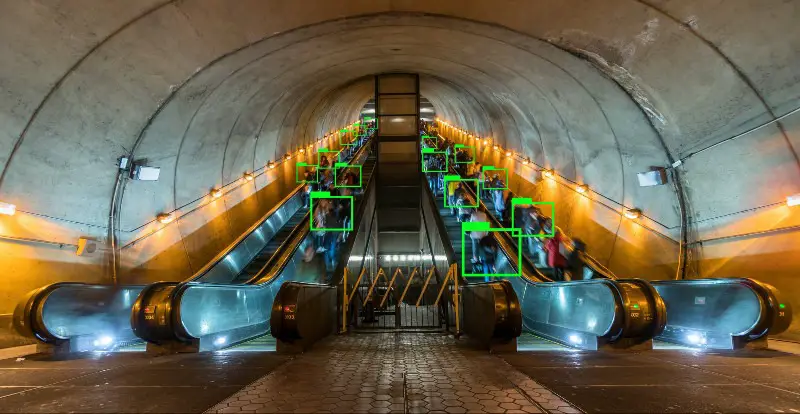Black Box AI might sound like something straight out of a science fiction movie, but it’s actually a real and fascinating part of today’s technology. To put it simply, Black Box AI is a type of artificial intelligence where the way it makes decisions is kind of a mystery. It’s like asking your friend how they solved a super tough math problem, and they just say, “I just did,” without explaining how. This concept is becoming increasingly important in many fields, including healthcare, robotics, and the evolving landscape of work.
For students and educators, understanding Black Box AI is crucial as it shapes the future of technology and its applications in various sectors. In this blog post, we will explore how Black Box AI impacts healthcare, its significance in robotics, and what it means for the future of work. Our goal is to make this complex topic easy to understand for someone with an education level of an eighth grader, so let’s dive in!
Healthcare and Black Box AI
In healthcare, Black Box AI acts like a super-smart helper that can analyze a patient’s data and suggest diagnoses or treatments. Imagine a computer program that can read through thousands of medical records in seconds and find patterns that even the best doctors might miss. This can be incredibly helpful in finding the right treatments faster and more accurately.
However, the challenge with Black Box AI in healthcare is that it doesn’t always show its work. Doctors and patients might not understand how it came up with a certain diagnosis or treatment plan. It’s like getting a health recommendation from a very smart but very secretive doctor. This lack of transparency can make it hard to trust the AI’s suggestions, even if they are helpful.
Students, Educators, and Black Box AI
For students and educators, Black Box AI is both a fascinating subject and a crucial tool for learning. It opens up new ways of teaching and learning, like personalized education programs that adapt to each student’s learning style. Imagine a computer program that helps you learn math by giving you problems that are just right for your level, getting harder as you get better.
But, there’s a flip side. When students and educators use Black Box AI tools, they might not understand how these programs decide what to teach and when. It’s like having a tutor who helps you learn faster but never explains their teaching methods. This can make it challenging for educators to fully integrate these tools into their teaching methods without understanding how they work.
Robotics and Black Box AI
In the world of robotics, Black Box AI is like the brain of a robot. It helps robots make decisions, learn from experiences, and even interact with humans. These robots can do amazing things, from assembling cars in factories to helping out in homes. They can learn and adapt over time, making them increasingly efficient and useful.
But here’s the catch: often, we don’t know exactly how these robots learn and make decisions, thanks to Black Box AI. It’s like having a robot pet that learns new tricks but can’t explain how it learned them. This can raise safety and ethical concerns, especially as robots become more common in workplaces and homes.
Myths vs. Facts about Black Box AI
Myth 1: Black Box AI can think and feel like humans. Fact: Black Box AI doesn’t have emotions or consciousness. It processes information based on data and algorithms.
Myth 2: Black Box AI is always accurate and reliable. Fact: Black Box AI can make mistakes, especially if the data it’s trained on isn’t accurate or complete.
Myth 3: Black Box AI is too complicated for anyone to understand. Fact: While Black Box AI is complex, researchers are working to make it more understandable and transparent.
FAQ on Black Box AI
What is Black Box AI? Black Box AI is a type of AI where the decision-making process is not clear or visible. It’s like a computer program that can solve problems but doesn’t show how it solved them.
Why is Black Box AI important in healthcare? Black Box AI can quickly analyze medical data, which helps in making faster and more accurate diagnoses. However, its lack of transparency can be a challenge for medical professionals and patients.
How does Black Box AI affect students and educators? Black Box AI offers personalized learning tools but also poses challenges in understanding how these tools adapt to individual learners’ needs.
What role does Black Box AI play in robotics? Black Box AI helps robots make decisions and learn from their environment. However, not fully understanding how robots learn and decide can raise safety concerns.
How will Black Box AI shape the future of work? Black Box AI could lead to more automation and smarter tools in the workplace. Understanding its operation is crucial for effectively integrating it into future jobs.
Google Snippets
- Black Box AI: “AI systems where the decision-making process is not transparent or easily understandable.”
- Robotics AI: “The use of artificial intelligence in robotics, enabling robots to perform tasks autonomously and learn from their experiences.”
- Future of Work: “The evolving nature of work influenced by technological advancements, including AI and automation.”
Black Box AI Meaning: From Three Different Sources
- Tech Encyclopedia: “Black Box AI refers to AI systems whose inner workings and decision-making processes are opaque or not clearly understood.”
- Academic Journal: “Describes AI models where the rationale behind decisions is unclear, posing challenges in transparency and understanding.”
- Industry Publication: “AI systems that function effectively but do not provide insight into their decision-making processes.”
Did You Know?
- The term “black box” originally comes from aviation, where the flight recorders are known as black boxes because they’re hard to understand and access.
- Some Black Box AI systems can evolve and improve over time through a process called machine learning, but explaining how this happens can be challenging.
- The study of Black Box AI is not just about technology; it also involves ethics, as it raises questions about trust and responsibility in AI decisions.
In conclusion, Black Box AI is a complex yet incredibly impactful part of modern technology. Its applications in healthcare, education, robotics, and the future of work show both its potential and the challenges it brings. Understanding Black Box AI helps us appreciate its capabilities and prepare for its implications in various sectors. By exploring and demystifying Black Box AI, we can harness its power responsibly and creatively in our increasingly tech-driven world.
References
- Explainable AI that uses counterfactual paths generated by conditional permutations of features. This method is used to measure feature importance by identifying sequential permutations of features that significantly alter the model’s output. The paper discusses the evaluation strategy of comparing the feature importance scores computed by explainers with the model-intern Gini impurity scores generated by the random forest, which is considered as ground truth in the study.
- Thinkful offers insights on how to address the “black box” problem in AI through Explainable AI (XAI) and transparency models. They discuss techniques like Feature Importance Analysis, Local Interpretable Model-agnostic Explanations (LIME), SHapley Additive exPlanations (SHAP), Model Distillation, and Decision Rules, which are designed to make AI models more interpretable and transparent. This is especially important in applications where decisions can have far-reaching consequences, such as healthcare or finance






